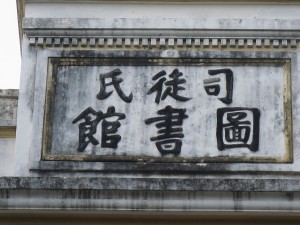- Details
By Popular Demand (Journey Into the Hinterland)
.. an old podcast: A Sojourn in Shenzhen. Yes, one whole person has expressed interest in hearing it, so I must oblige. Also I happen to be going to Shenzhen again tomorrow as part of →
- Details
New Cantonese Video
Wei hey all you groovy Canto-learners out there. Check out “Return Of The Cantonese Fundamentalists.” We put the fun back in mental!
That Threatening Breakfast
I’ve just come back from a very pleasurable quiz night with some friends- and incredibly knowledgeable they were too. I knew nothing about tennis and Hot Chocolate, and stood helpless before a picture of chickens →
20 000 Words of Madness
Taken into consideration that I am still in awe of the fact that it's possible to flip a switch and the light comes on, imagine my wonderment when I first beheld an electronic English/Chinese (and →
Chicken Talking to Duck (雞同鴨講)
Sometimes, almost always, the below kind of conversation is funny, yes surreal. But not when I’ve spent all day on a bus full of people with, shall we say a relaxed relationship with personal hygiene →
Hurtling Towards the Wild-ish West
At last! I’m almost on the train which will bring me to Lanzhou, transport hub of the northern provinces of China, and thence to the innermost reaches of inner inner everything, as far from the →
Dumbing Down of Chinese Culture
When the communists, soon after they came to power in 1949, introduced simplified Chinese characters, it was ostensibly to reduce illiteracy on the mainland. However, their real objective was to enable peasants and other illiterates →
- Details
Our Favourite Professor is Back!
Thanks to Eleanor Levett, the mad professor is back on the screen is all his mouth-frothing glory! Hong Kong people are thieves and dogs! We should all speak mandarin and shut up! Yes, this interview (or should I say “interview” – I have never seen such a simpering, inefficient interviewer) is as delicious as ever! Long live the Cultural Revolution!!!
- Details
Have! More!
In yesterday’s article I talked about how expressions containing the word ‘have’ in English hardly ever contain 有 (yau – have) in Cantonese, such as have some Mons (飲雪花 yam Suet Fa – Drink Snow →
HAVE!
I love English but sometimes its over-reliance on certain words to describe wildly different things irks me. Take the word have. While it’s nowhere near the top word, as in the word with the most →
Tidying Up 執嘢
I don’t have time to write anything today! I’ve been overcome by a strange Protestant work ethic and have spent the day tidying up 執嘢 (jap yeh – collect/tidy things) and throwing things away. The →
Good Your Head (Chinese For Advanced Learners)
My daylight hours are starting to fill up with Cant-studs (Cantonese students) coming to my house, and of course I have to offer them something for struggling up all those stairs and paying me. As →
Frustrated And A Half!
Finally, after almost a year of writing and researching (the research consisted mostly of doing the dishes) I have finished my new book CHILLies! Sichuan Food Made Easy. It looked so alluring with the iBook →
Have You Ever Been To?
While writing about 墨西哥 (Mak Sai Go – Mexico) the other day, I started thinking about other countries I absolutely must go to. The first one on my list is, naturally, North Korea 北韓 (Bak →
Even More About That 嗰!
The New China Bookshop in Guangzhou, or actually, the New China Bookshop in general, is a real treasure trove. Look what I found there last weekend, a map of Mexico with all the towns and →
Girlie Morning in Nature
Are spiders actually really stupid? I mean they can spin these beautiful webs, masterpieces of engineering and all that, but are they a bit dim all the same? This morning I had the first proper →
More About That! 嗰
嗰個人係四川人 (go go yan hai Sei Chyun yan – that piece person is Four River person, that person is from Sichuan) 嗰個人 (go go yan – that piece person). That should be pretty plain sailing →
That! 嗰個!
Here’s a word, short, unassuming, that often creates trouble for my clients (“victims”). It’s 嗰 (go – that.) Now, the word this is never a problem for any of my clients. It’s all 呢個(li go →
Contact us today
Email info@learncantonese.com.hk
to find out how you can start learning Cantonese.

